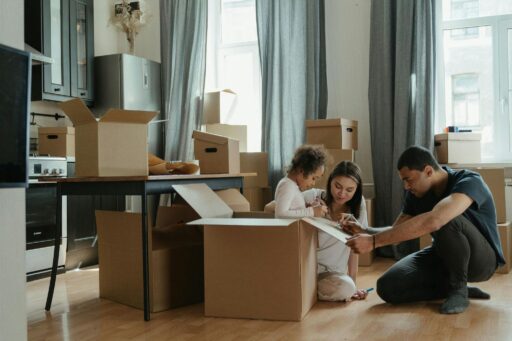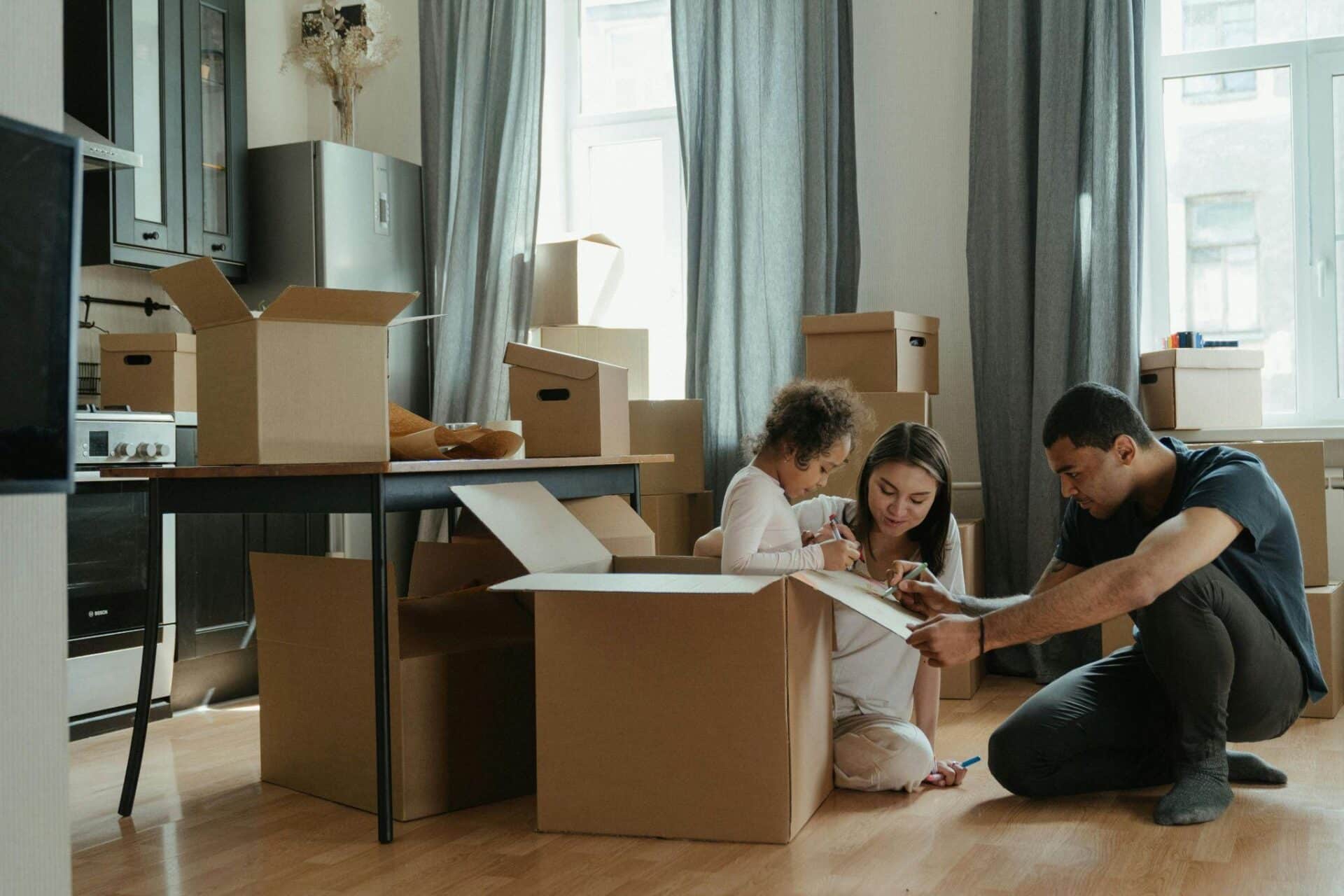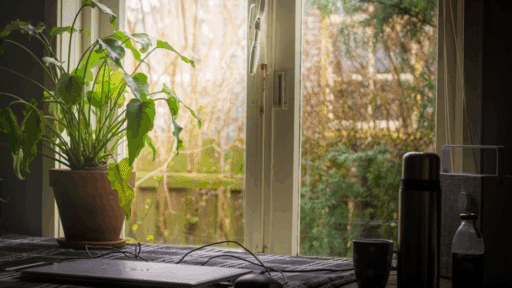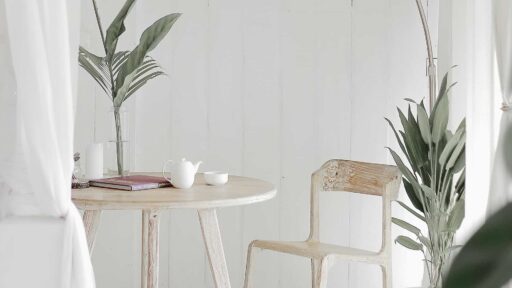Moving to a new home can feel like a big mix of emotions. You’re excited about a fresh start, but at the same time, it can be stressful. There are boxes to unpack, furniture to arrange, and endless small details that take time to sort out. Even after the moving truck drives away, it can take days or even weeks to feel comfortable again.
If you’ve ever looked around your new place and wondered where to start, you’re not alone. Moving into a new home doesn’t have to feel stressful. With a bit of organization and a few thoughtful steps, you can make the adjustment easier and start feeling comfortable in your new space sooner.
1. Get Organized Before and Right After Moving
A good move starts with good planning. The more organized you are before and during the move, the easier it will be to settle in afterward. Begin by sorting your belongings early. Donate or sell items you don’t use. Fewer things to move means fewer things to unpack later.
When packing, label your boxes clearly by room and priority. Write short notes on what’s inside each one. You’ll thank yourself when you can easily find your coffee maker or bedding after a long day. Keep a small box of essentials for the first few days. It should include toiletries, a few dishes, medications, and a change of clothes.
If packing and loading sound like too much, it’s worth hiring local movers to do the heavy lifting for you. They know your area well, which makes scheduling and coordination easier. They also handle heavy lifting safely and efficiently. Many movers offer flexible options, like helping with packing or just unloading, depending on your needs. It saves you time and energy so you can focus on getting settled instead of feeling worn out.
After moving in, start by setting up the basics. Connect utilities, check that all appliances work, and clean key areas before unpacking. Create a checklist for what needs to be done in the first few days. Having a plan helps you stay focused and prevents that feeling of chaos.
2. Unpack With a Purpose
Unpacking can feel never-ending, but it doesn’t have to be a race. Start with one room at a time. The kitchen and bedroom are usually the most important. If you can cook a meal and get a good night’s sleep, you’ll feel more at ease.
Avoid scattering open boxes all over the house. Focus on finishing one space completely before moving to the next. When you see a room come together, it gives you a sense of progress and calm. It also helps you feel more in control of your new surroundings.
Set small goals for yourself. Try unpacking two or three boxes each day instead of tackling everything at once. Celebrate small wins like setting up your couch or organizing your closet. Little achievements add up and help you feel settled sooner.
3. Create a Familiar Atmosphere
Your new home will start feeling familiar when it reflects your personality and daily habits. Begin by using familiar items that remind you of comfort. Hang your favorite wall art or family photos early. Place your usual throw blanket on the couch or light a candle you love. These small touches help you relax and feel connected to your space.
Stick to your normal routines whenever possible. If you usually have coffee on the patio or watch a show after dinner, keep doing those things. Familiar routines help your mind adjust to a new environment.
Try arranging furniture in a way that feels natural. It doesn’t have to match your old layout exactly, but a familiar flow can help you feel more at home.
4. Connect With Your New Community
Getting settled isn’t just about what’s inside your house. It’s also about feeling connected to the people and places around you. Take a walk through your new neighborhood. Learn where the grocery store, park, and nearest coffee shop are located.
If you see your neighbors outside, take a moment to say hello. Even a short conversation can make you feel more welcome. Attend local events or visit community centers. Many towns have farmers’ markets, library programs, or fitness classes where you can meet people who share your interests.
If you have children, helping them adjust is just as important. Introduce them to nearby playgrounds or community groups. A sense of belonging helps both kids and adults feel settled.
5. Take Care of Yourself During the Adjustment
Moving can be tiring both physically and emotionally. It’s easy to get caught up in the tasks and forget to rest. Remember that it’s okay to slow down. You don’t have to unpack everything in one weekend.
Eat balanced meals, drink plenty of water, and get enough sleep. Small things like these keep your energy up and your mood stable. Try to include short breaks between unpacking or organizing sessions. Go for a short walk or spend a few minutes outside. Fresh air helps clear your mind.
It’s also normal to feel homesick. You might miss familiar sounds or the comfort of your old routines. Give yourself time to adjust. Keep in touch with friends and family, even if it’s just a quick phone call. Sharing your feelings helps reduce stress and reminds you that you’re not alone in the process.
Feeling settled in a new home doesn’t happen overnight, but every small effort counts. Each box unpacked, and each new connection brings you closer to feeling comfortable. The goal isn’t perfection; it’s progress.
Take your time to create a space that feels like you. Whether you hang up photos, meet a neighbor, or simply relax with a cup of coffee, these moments help your new house start to feel like home.
Moving can be a lot of work, but it also marks the beginning of something new. Embrace it one step at a time, and soon enough, you’ll find yourself completely settled and ready to enjoy your fresh start.








